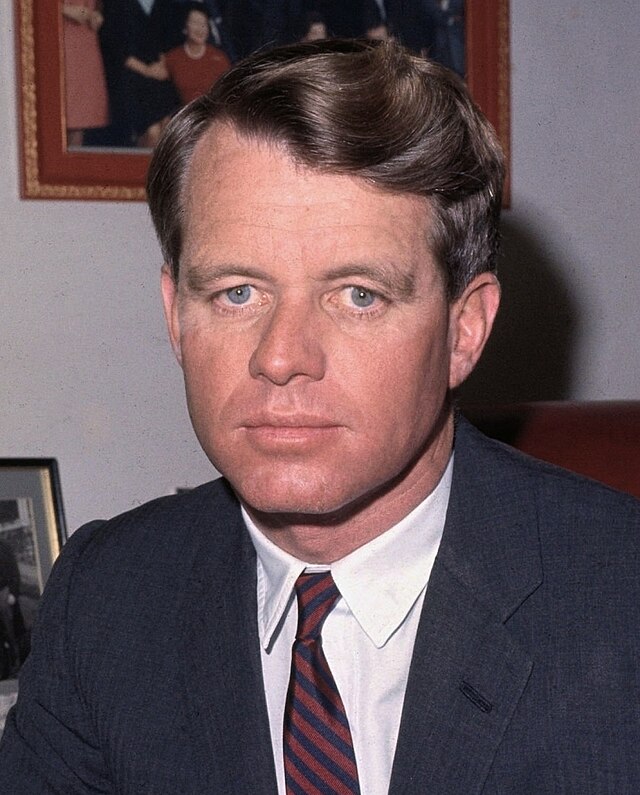**Introduction**

Robert Francis Kennedy, born on November 20, 1925, in Brookline, Massachusetts, was a notable figure in American politics and justice.
Robert, also known as “Bobby,” was a famous Kennedy family member who made important contributions to American politics, social justice, and public service.
His life and work were formed by strong family values, a solid education, and an uncompromising dedication to justice and equality.
**Early Life and Education**
Robert Kennedy was the seventh child of Rose and Joseph P. Kennedy. Growing up in a large, competitive family, he later recalled, “I was the seventh of nine children, and when you’re that far down, you have to struggle to survive.” This environment instilled in him a fierce drive to succeed.
His education journey began after his military service in World War II, attending Milton Academy, then graduating from Harvard University with a degree in politics in 1948.
In 1951, he completed his law degree at the University of Virginia School of Law.
**The Influence of Family and Values**
The Kennedy family’s dinner table discussions about history and current events profoundly influenced Robert. “I can hardly recall a meal where the conversation wasn’t dominated by what Franklin D. Roosevelt was doing or what was happening in the world,” he recalled. This exposure to current affairs at a young age cultivated his passion for politics and public service, guiding his values and career.
**Marriage and Family**
In 1950, Robert Kennedy married Ethel Skakel, from Greenwich, Connecticut. Together, they raised eleven children, creating a close-knit family similar to his own upbringing. Ethel and Robert shared a dedication to family values and public service, which would later play a role in their children’s lives and careers.
**Early Political Career and Public Service**
Robert’s political career began in earnest in 1952 when he successfully managed his brother John F. Kennedy’s Senate campaign in Massachusetts. The following year, he briefly worked with Senator Joseph McCarthy’s Senate Investigations Subcommittee but resigned after six months due to disagreements over McCarthy’s controversial tactics. Later, he rejoined as lead counsel for the Senate Rackets Committee, gaining national attention for his work exposing corruption in the Teamsters Union under leaders like Jimmy Hoffa and David Beck.
**Role in John F. Kennedy’s Presidential Campaign**
Robert Kennedy was a key player in his brother’s 1960 presidential campaign, showcasing his skills as a dedicated and highly effective campaign manager. His efforts contributed significantly to John F. Kennedy’s victory, solidifying Robert’s role as a trusted adviser and campaign strategist.
**Attorney General and Legacy of Justice**
Appointed as Attorney General in President John F. Kennedy’s administration, Robert Kennedy led the Justice Department with a strong focus on civil rights and organized crime. He earned respect for his diligence, efficiency, and dedication to fairness, and his work established a legacy of justice and integrity. His efforts in the role set new standards for the department, emphasizing the importance of impartiality and public service.
**Conclusion**
Robert Kennedy’s journey from a member of a competitive family to a prominent leader in American politics and justice showcases a life dedicated to service, integrity, and social justice. His impact as Attorney General and his continued influence in political circles reflect a commitment to the values instilled by his family. Kennedy’s legacy endures, inspiring future generations to pursue public service with the same dedication and resilience.
